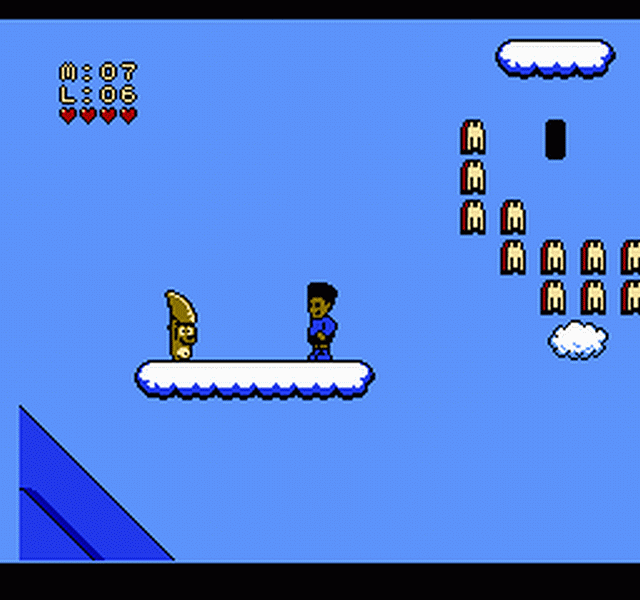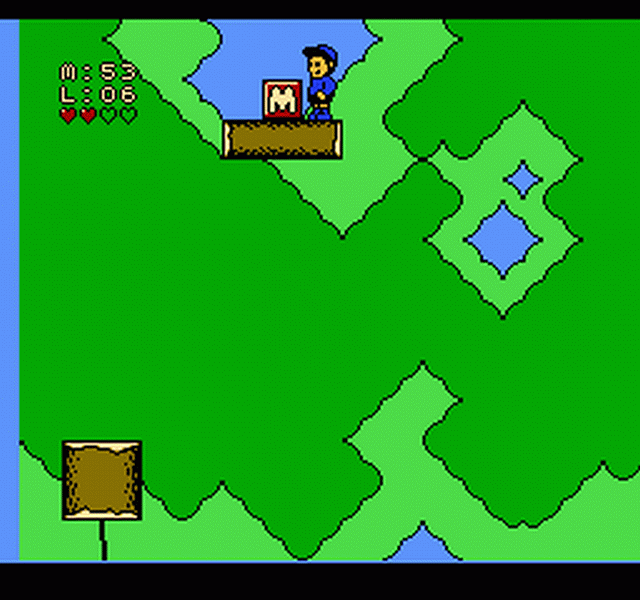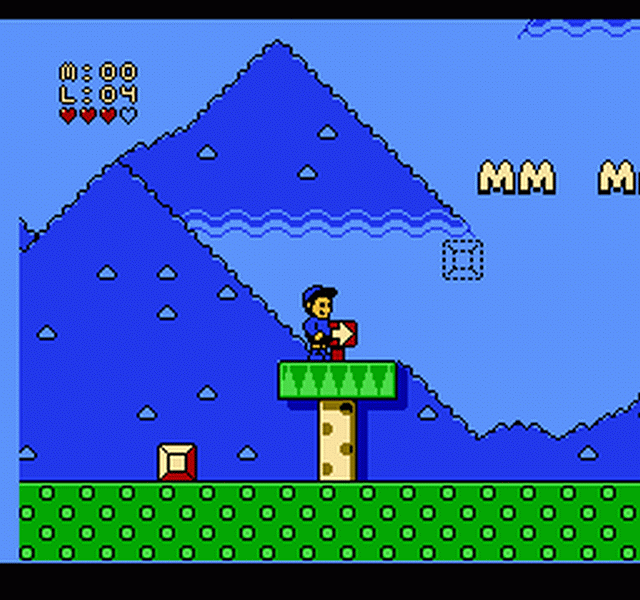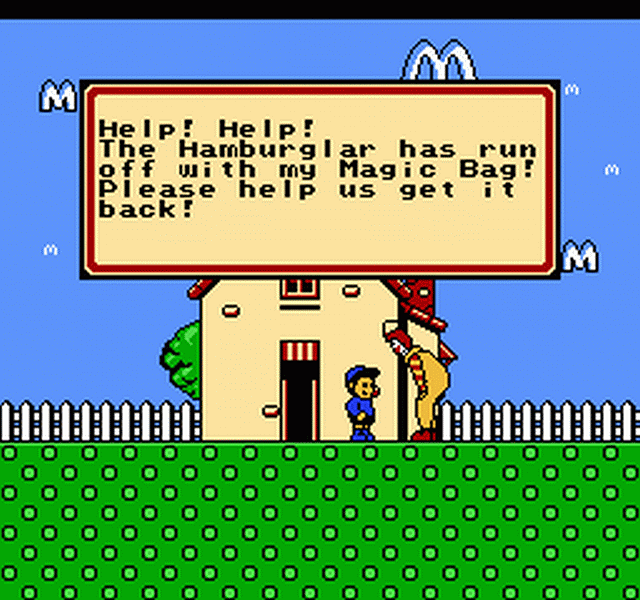
McDonaldland (1992-)
Developer: Virgin Games
Publisher: Virgin Games | Ocean
Genre: Platform
McDonaldland for the NES, known as M.C. Kids in North America, was developed by Virgin Games and released in 1992. Virgin Games published the North American version, while Ocean handled publication in other regions. The game was ported to several other platforms, including the Commodore 64, Amiga, Atari ST, and MS-DOS, under the title McDonaldland in Europe. A Game Boy version was also released, rebranded as Spot: The Cool Adventure, featuring the 7 Up mascot Spot instead of the original McDonaldland characters.
The story follows two children, Mack and Mick, who journey into the fantasy world of McDonaldland to recover Ronald McDonald's magical bag, which has been stolen by the Hamburglar. The gameplay is a side-scrolling platformer with exploration and puzzle-solving elements. Players navigate through seven large worlds, each with unique themes and challenges, collecting items, defeating enemies, and solving small puzzles. The game features hidden cards and sections that invert or modify the level design, adding a layer of complexity to the platforming.
Gameplay centers on guiding Mack and Mick through the vibrant environments, using precise timing to jump across platforms and avoid hazards. Each level has distinct obstacles and enemies, requiring players to carefully plan their movements. The NES version preserves the bright and colorful aesthetic of the McDonaldland universe. The soundtrack, composed by Charles Deenen, features cheerful, engaging music and sound effects that enhance the game’s playful atmosphere, making it appealing to its target audience of children and fans of the McDonaldland franchise.
McDonaldland/M.C. Kids did not have a direct NES sequel, but it was followed by Global Gladiators in 1992, another McDonald’s-themed platformer developed by Virgin Games. While not a direct continuation, Global Gladiators shares similar platforming mechanics and branding elements. Promotion emphasized the connection to popular McDonaldland characters and the appeal of family-friendly platforming gameplay. Reception was mixed, with praise for the colorful graphics and entertaining levels, but criticism for repetitive gameplay and limited depth compared to other platformers of the era. Despite these critiques, McDonaldland remains a notable example of licensed video games that brought recognizable commercial mascots into interactive entertainment.
Images from MobyGames
Buy McDonaldland
Click one of the Ebay or Amazon buttons below to check the latest prices and purchase McDonaldland for the Nintendo Entertainment System.

Related Searches
McDonaldland NES Download
McDonaldland is available to purchase and download from a range of vendors. Always shop around...
McDonaldland NES Manual
Various repositories around the internet have scanned and archived a range of retro manuals. Search now to.....
McDonaldland NES Rom
We don't host or link to rom sites for this game. However, there are many sites out there that may be...
McDonaldland NES Walkthrough
Many sites - particularly YouTube - host a range of walkthrough videos to guide you in your quest to get...
McDonaldland NES Cheats
There are various sites out there that can offer cheat codes for games. Search now to find all available...
McDonaldland NES Controls
This information can often be obtained through the user manual. Alternatively there are many sites out there...
McDonaldland NES Release Date
The initial release date for McDonaldland is stated as February 1992. Other ports of the game may..
McDonaldland NES Review
There are many sites out there that have collated and documented historic reviews of this game. Search now...
McDonaldland Famicom
As a Nintendo Entertainment System release, this game was also likely also available on the Famicom. This....
McDonaldland NES Speedrun
There is now a community of competitive speedrunners who will try and gain the fastest possible time on their....








